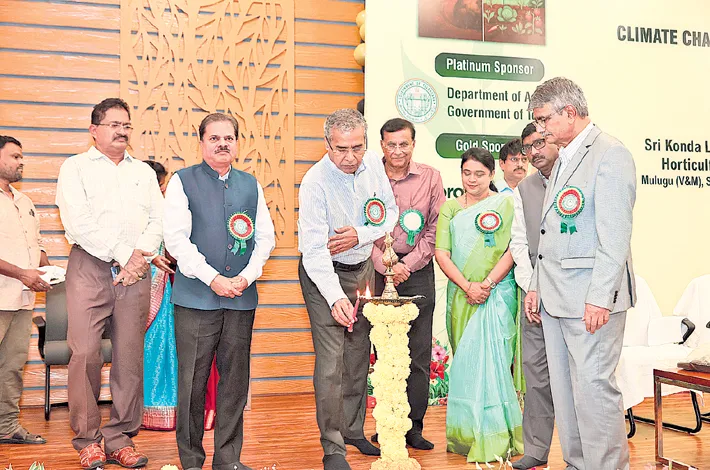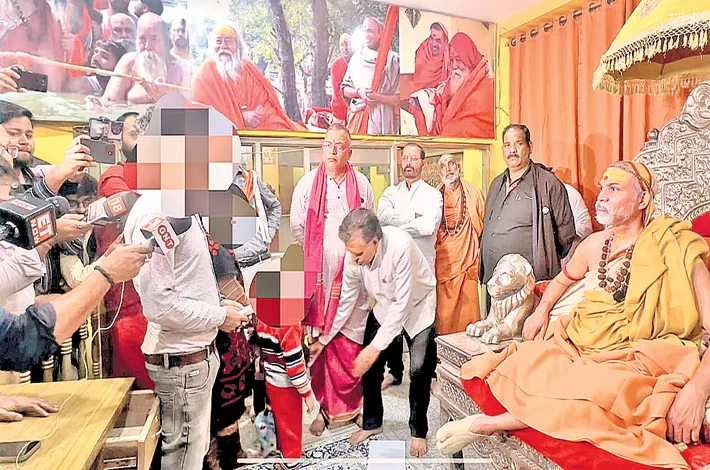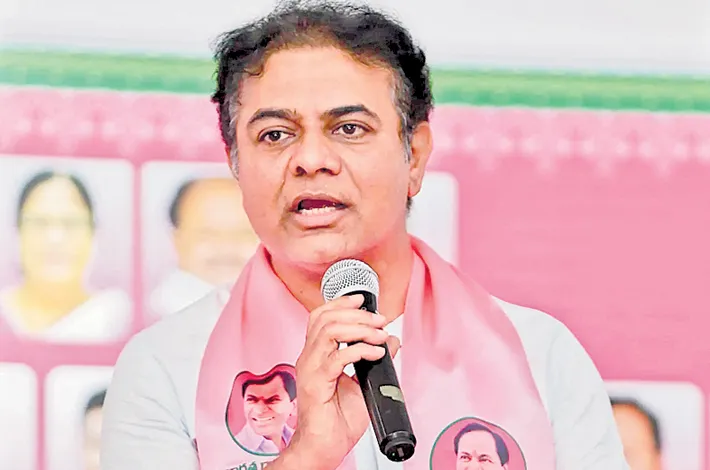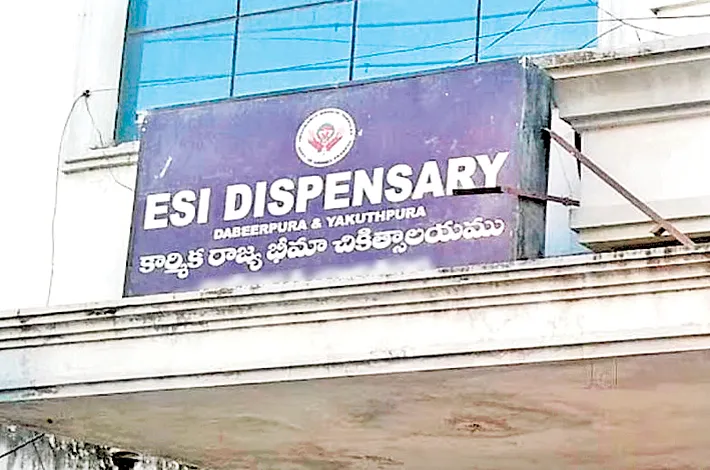‘Adopt climate-smart horticultural practices’
19-09-2025 12:00:00 AM

Climate change is now a household word. IMD is strengthening farmer-centric services with accurate forecasts, WhatsApp advisories, and climate-smart guidance for Horticulture. Cyclone Man of India Dr Mrutunjay Mohapatra
mahesh avadutha I siddipet
Climate change has entered the everyday vocabulary of people across India and it is a reality today. “Everyone from farmers, fishermen, street vendors and even politicians use it on a regular basis and with “altered flowering and fruiting cycles” due to climate variability, the time has come to adopt climate-smart horticultural practices, said Dr Mrutunjay Mohapatra, Director General, India Meteorological Department (IMD) also known as Cyclone Man of India.
He was speaking at the two-day National Conference on Climate Change and Horticulture: Impacts, Adaptation and Mitigation Strategies (CLIMAHort-2025) here on Thursday at Sri Konda Laxman Telangana Horticulture University (SKLTGHU).
Dr Mohapatra elaborated on new initiatives such as farmer-centric communication via WhatsApp. “We are creating WhatsApp groups with a minimum of five farmers per group per village. The objective is efficient dissemination of weather advisories, alerts and agromet information, along with real-time interaction between IMD and farming communities,” he said.
Recalling that IMD has been providing forecasts for agriculture from before Independence period, he outlined the agency’s expanding role in farming. “IMD provides accurate weather forecasts and early warnings tailored to crop stages, issues agro-meteorological advisories through multiple platforms, collaborates with agricultural universities and KVKs for capacity building, and supports policy planning for climate-resilient farming systems,” he explained.
Place farmers at the centre M Raghunandan Rao, IAS, urged scientists, researchers, institutions and industry to place farmers at the center of innovation. “The solutions should be attractive, practical and workable to the farmers to get the desired results,” he said. “Erratic weather, water scarcity, pest and disease outbreaks, and post-harvest losses demand a holistic approach that integrates research, innovation, value addition, digital platforms, branding and market linkages,” he emphasized.
Shaik Yasmeen Basha, Director of Horticulture and Sericulture, Government of Telangana, highlighted the rapid growth of horticulture in the state. “Horticulture is one of the fastest-growing sectors in Telangana, contributing significantly to the state's economy, nutritional security and rural livelihoods,” she said. Outlining interventions such as micro-irrigation, polyhouse cultivation, tissue culture, mechanisation and promotion of high-value crops, she noted that horticulture is cultivated in 12.46 lakh acres—about 6 percent of cultivable land—and contributes to 30 percent of agricultural GDP.
“We are not able to meet the demands of the state and hence importing vegetables and fruits from other states,” she pointed out, adding that the conference’s deliberations would help develop a “climate-resilient, farmer-oriented and globally competitive horticulture sector in Telangana and India.”
B. Uday Bhaskar, Chief General Manager, NABARD Regional Office, Hyderabad, said the development bank has been backing horticulture through micro-irrigation, watershed management, farmer producer organisations (FPOs), cold chain and storage infrastructure, and agri-startup promotion.
Earlier, welcoming the delegates, D. Raji Reddy, Vice-Chancellor of SKLTGHU, underlined the urgency of the issue. “Climate change poses unprecedented challenges to horticulture, directly impacting productivity, sustainability and farmers’ livelihoods. At this critical juncture, the collective wisdom of scientists, policymakers, industry partners and farming community is essential to develop innovative, climate-resilient solutions,” he said. The conference, he added, would be “an excellent platform to share research findings, deliberate on strategies and explore approaches that can mitigate risks while harnessing new opportunities.”
With top experts, policymakers, and institutions under one roof, CLIMAHort-2025 promises to shape strategies for a resilient horticulture sector amid the climate crisis. The event is being jointly organised by the Ministry of Earth Sciences, Government of India, Department of Horticulture, Government of Telangana, Dr Rajendra Prasad Central Agriculture University, Samastipur (Bihar), NABARD Regional Office Hyderabad, and SKLTGHU.








